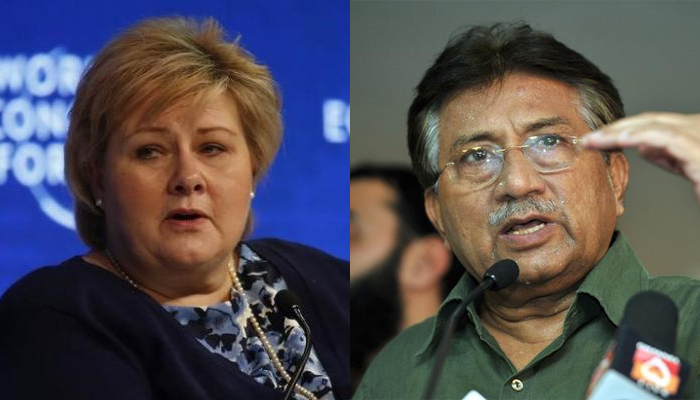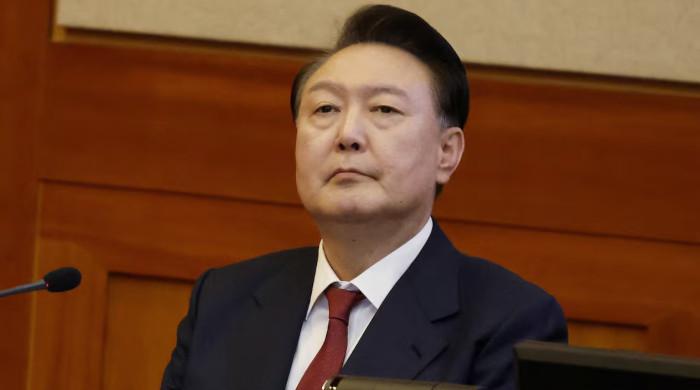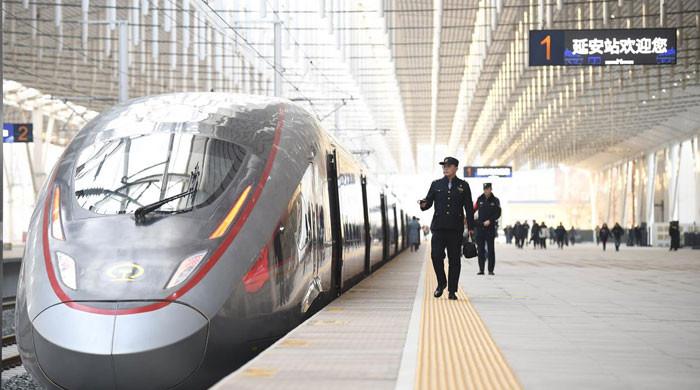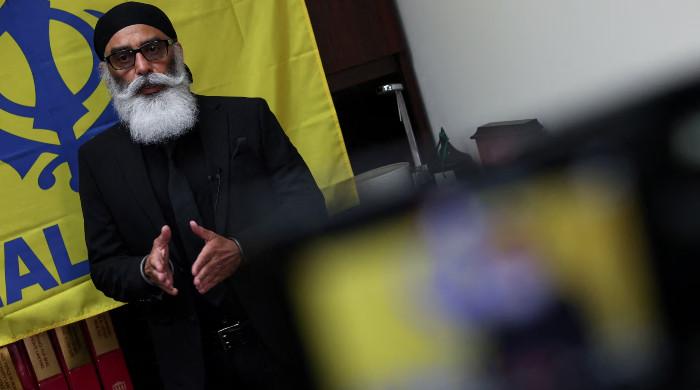Norwegian PM declines meeting with ex-Musharraf
Solberg's refusal was based on her being a democratic leader and Musharraf's military dictatorship, sources revealed
August 25, 2017

OSLO: The Norwegian Prime Minister declined to meet former Pakistani president General (retd) Pervez Musharraf, who was on a private visit to Norway last week.
When the ex-military leader tried meeting Erna Solberg at the opening ceremony of a multicultural festival in Oslo last Friday, her guards did not allow him to move further to reach her. Facing disappointment, he decided to leave the ceremony without staying back to attend it.
Some of this author's reliable sources in Oslo said Solberg's refusal was based on her being a democratic leader, while Musharraf was a military dictator. The former army chief, however, managed to get together with former Norwegian prime minister Kjell Magne Bandovik.
By the first day of his visit to the country, Musharraf faced a challenge during his lecture at the capital city's Nobel Peace Centre.
Arranged by Dialogue for Peace – a sister organization of the 14th August Committee that is headed by Norwegian Pakistani right-wing politician Aamir Sheikh – Musharraf's August 17 lecture focused on the theme of international affairs, comprising the world political system amid the ever-changing global scenario, changes in the US' strategical focus from Europe to Southeast Asia, and security situation in Pakistan.
However, instead of an audience of native scholars, most of the approximately 150 participants of Musharraf's talk were Norwegian Pakistanis, including some Baloch people. When one of them raised a question during the Q&A session, the organisers tried to forcibly stop the attendee, causing a sense of unease and rigidity.
The question was about the alleged killing of Baloch people – including the former governor of Pakistani Balochistan Nawab Akbar Bugti – in Pakistan during Musharraf’s tenure. The situation became worse when some other Balochs stood up from their seats and raised their province's issues and the anti-Musharraf slogans.
Musharraf was subsequently surrounded and guarded by the organisers, including Aamir Sheikh and his colleagues Sofi Anwar and Tala’at Butt, who stopped him from trying to answer the Baloch’s questions. The team also attempted to silence the Baloch people at the event to not raise any such questions further.
However, the organisers said they feared the interaction could snowball into a physical clash, which would have become a major issue. The event, therefore, was halted, the Baloch people were forced to leave, and Musharraf was asked not to address them.
Nobel Peace Center, therefore, issued a statement on why it "decided to stop the event".
"We want different, also critical, voices to be heard. We will not accept open debate to be hindered, but we will never use force to achieve it. Consequently, we found it necessary to cancel the Q&A and stop this event. We deeply regret how this turned out," the statement read.
Meanwhile, the former president received a warm welcome at another event, arranged by Norwegian-Pakistani organisation Pakistan Union Norway. People stood up to clap when he arrived.
Musharraf made an address during this event, which was scheduled on August 19 in line with Pakistan’s Independence Day celebrations at Lorenskog.









